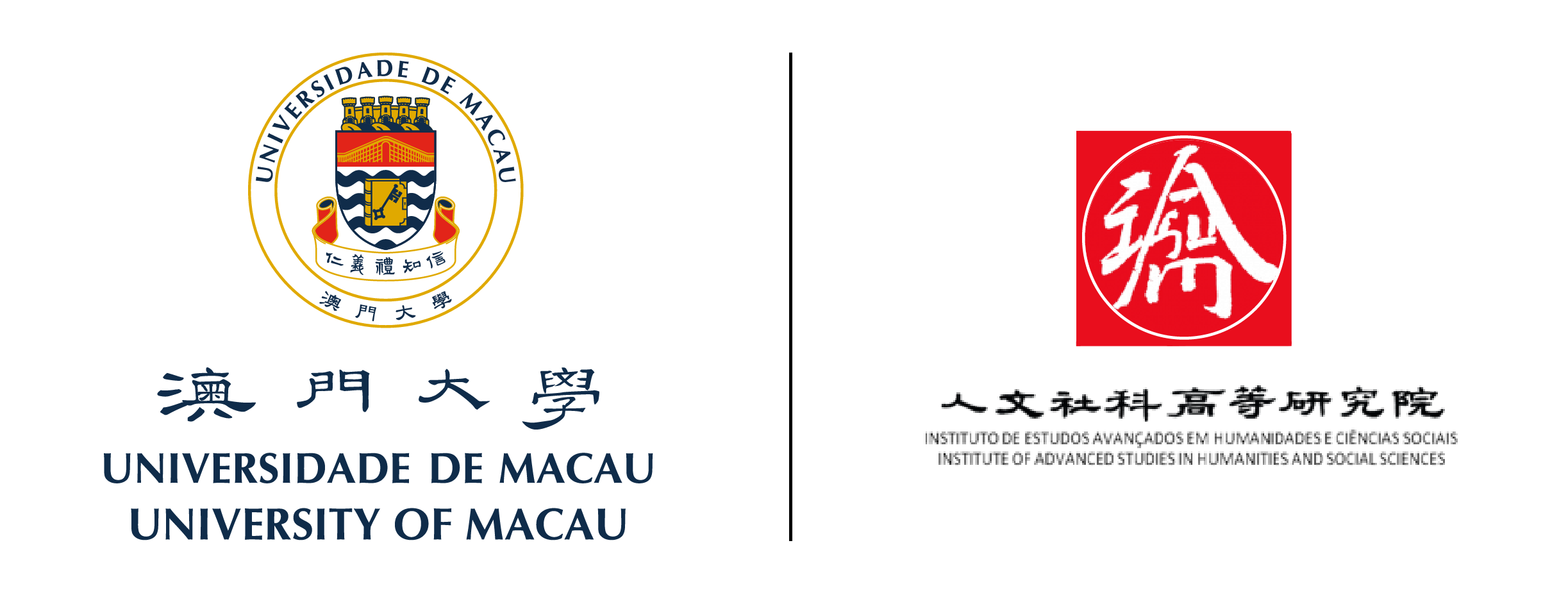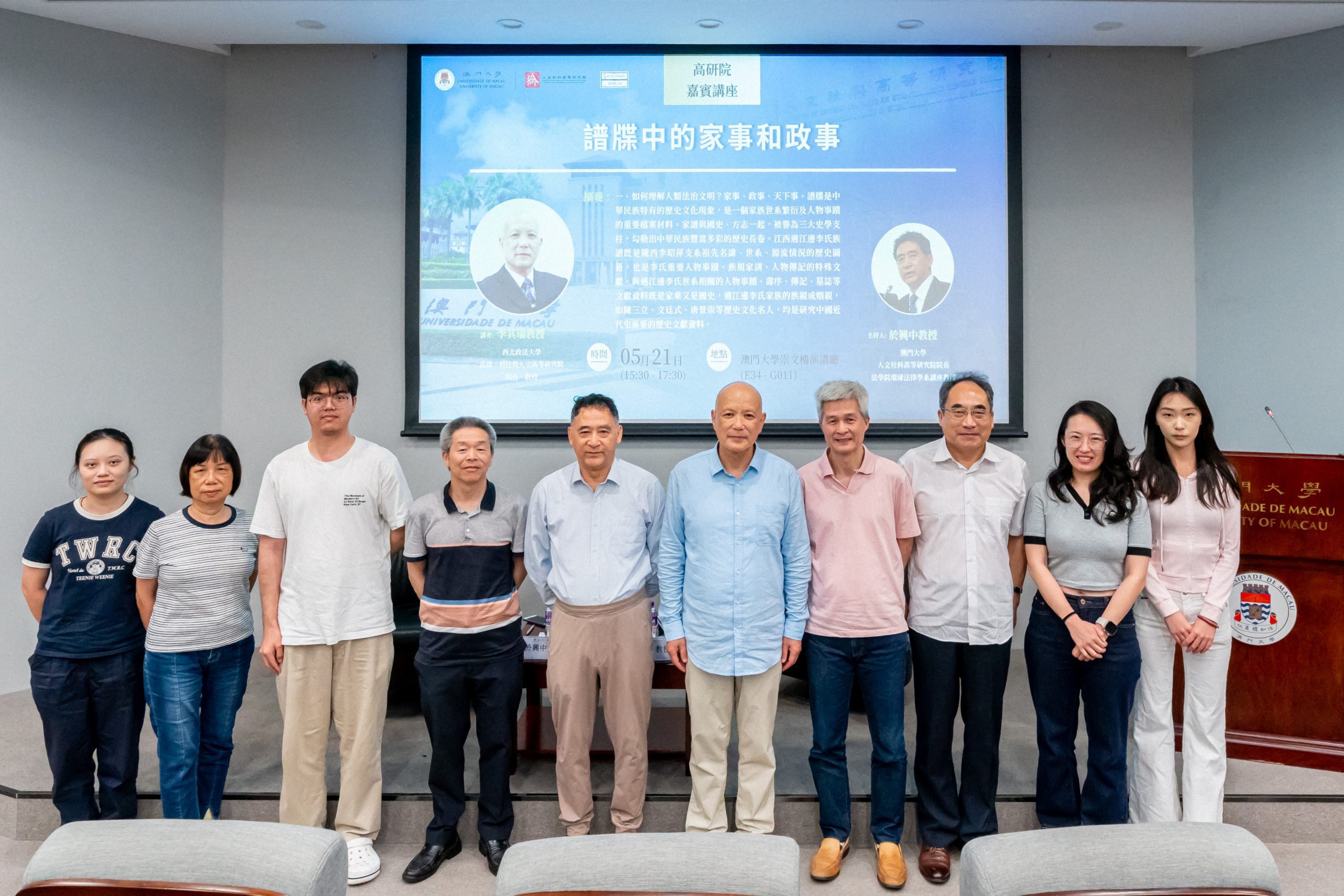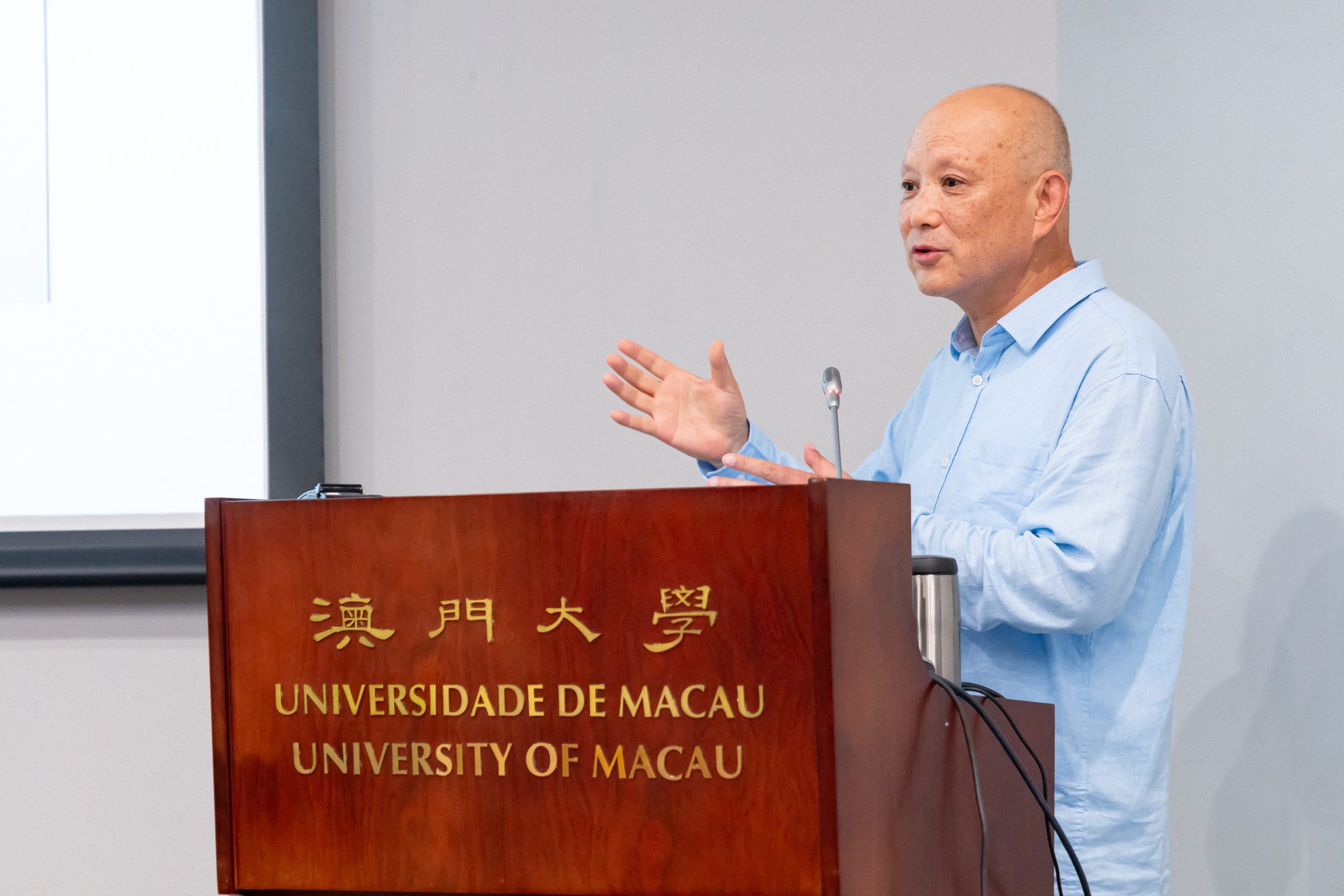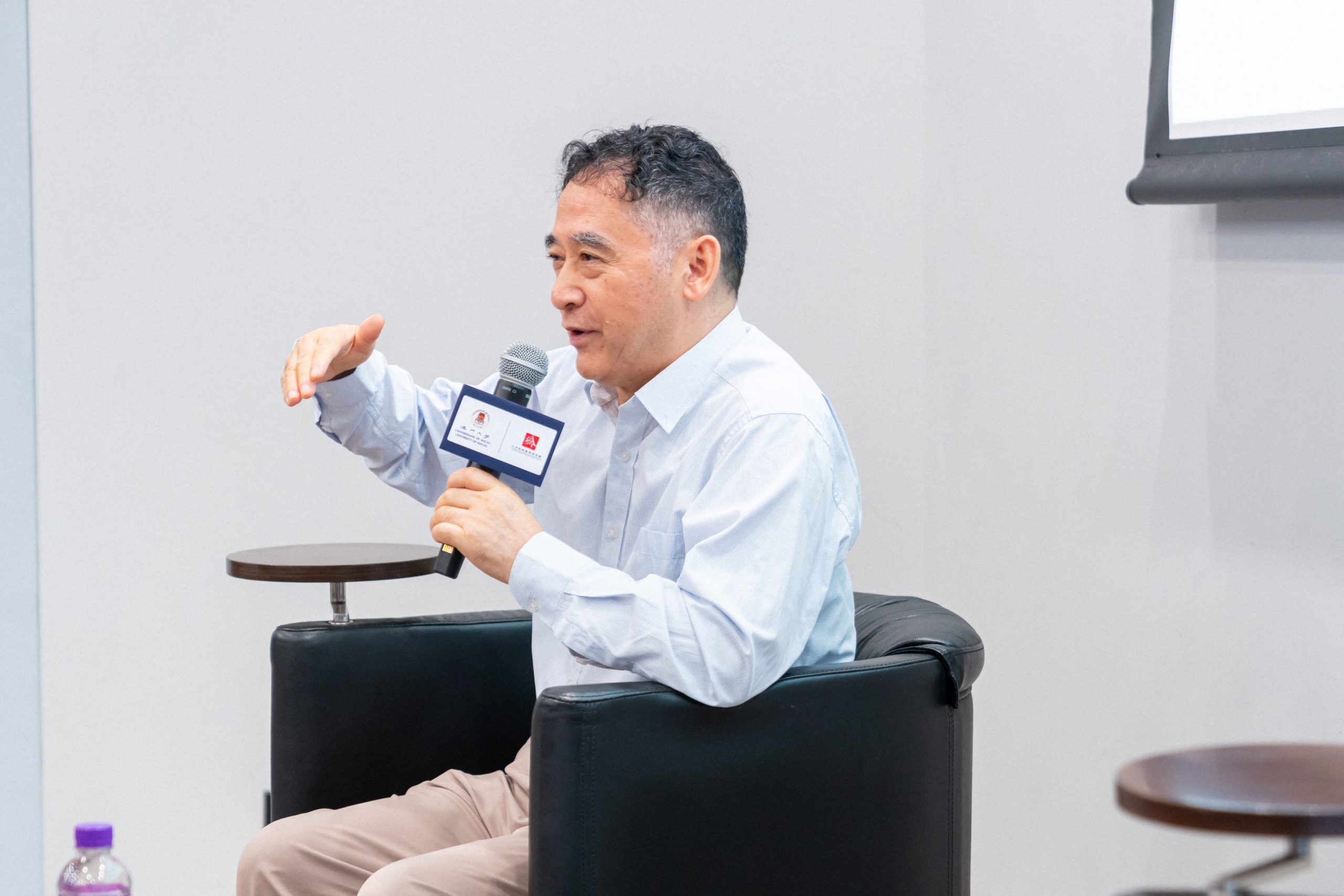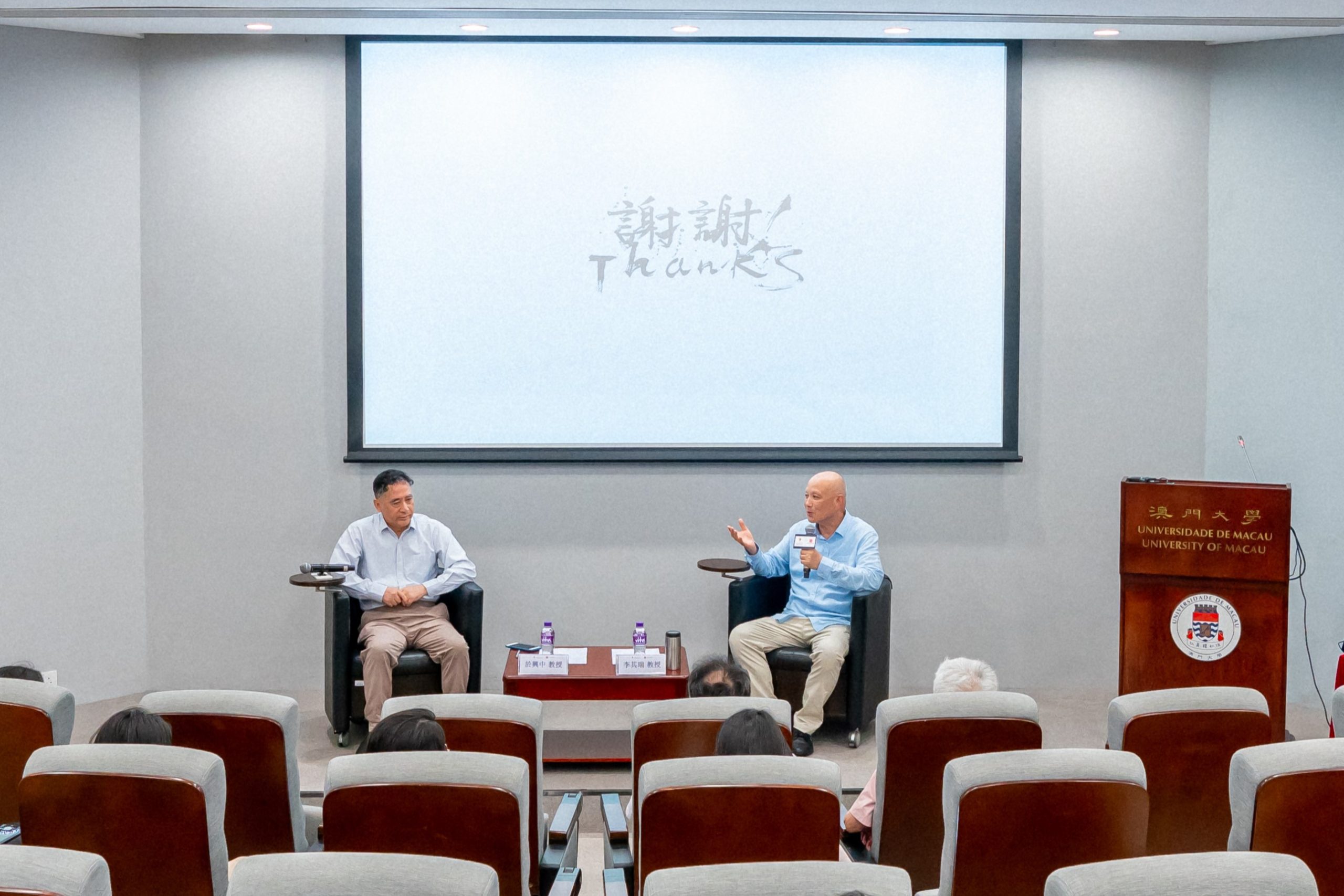
On May 21, the Institute of Advanced Studies in Humanities and Social Sciences (IAS) at the University of Macau successfully held a distinguished guest lecture titled “Family and Political Affairs in Genealogies.” The keynote speaker was Professor Li Qirui, Dean and Professor of the Institute of Advanced Study in Law, Technology and Humanities at Northwest University of Political Science and Law. The lecture, moderated by Professor Yu Xingzhong, Director of IAS and Chair Professor of the Faculty of Law, used the genealogy of the Li clan by the Zhou River as a case study to explore how family records within genealogies intersect with the broader progression of national history.
In this lecture, Professor Li Qirui pointed out that genealogies reflect both bloodline and marital affiliations. When officially recognized, they are referred to as registers; when privately kept by the people, they are termed private records. Throughout history, genealogical documentation flourished during the High Tang period, declined amid wartime turmoil, became widespread among common families starting in the Song dynasty, and increasingly emphasized ethical and moral education during the Ming and Qing dynasties.
The first page of the third edition of the Li clan genealogy along the Zhou River features the Tang dynasty’s Prince of Xiping, Li Sheng. His spirit-way stele—comprising the subject (Li Sheng), the inscription by the renowned prime minister Pei Du, and the calligraphy by the esteemed Liu Gongquan—is celebrated as the Stele of Three Perfections, owing to the distinguished contributions of all three figures. In the modern era, Li Youfen, Junior Guardian of the Crown Prince in the late Qing dynasty, left a vivid chapter in the Li genealogy. As the prefect of Wuchang, he once submitted a memorial advocating the relocation of the Hanyang Ironworks to better serve the livelihoods of farmers and fishermen. In the fields of journalism and education, he founded the Qinzhong Press Bulletin, compiled the Hunan Tax Affairs Digest, and edited the Supplementary Compilation of Treaty Provisions on Trade. While governing Jiangning, he co-founded the Liangjiang Normal School (now Nanjing University) alongside Liu Kunyi and Zhang Zhidong. As Minister of Railways in Jiangxi, he personally oversaw construction in Jiujiang, becoming a pioneer in China’s railway development. Finally, the professor introduced numerous virtuous and philanthropic figures who emerged in the Li genealogy during the late Qing and early Republican periods, along with more than ten illustrious families connected through marriage.
During the following discussion session, Professor Lin Shaoyang commented that during the late Qing period, cultural capital held greater value than in later eras. He also noted that the relationships among the Hui uprisings, land taxes, gentry, and the Taiping Heavenly Kingdom merit scholarly attention. Dr. Ma Qingzhou remarked that family matters are typically kept private, and in cases where historical sources are lacking, consulting local gazetteers and genealogies can be highly beneficial for academic writing. Professor Yu Xingzhong added that historical research can either follow the thread of elite family genealogies or focus on ordinary individuals amid the tides of change. In the Q&A session, attendees actively posed questions, engaging in lively discussions about the continuation of clan prosperity and the interrelations between family structures and national governance.
This lecture not only offered a thorough analysis of the Li clan genealogy along the Zhou River but also deepened participants’ understanding of the ties between genealogical records and the affairs of the state. It undoubtedly provided a wealth of intellectual inspiration and stimulated profound reflection on methodological approaches to historical research.

